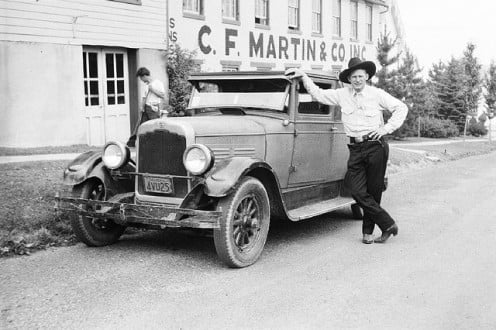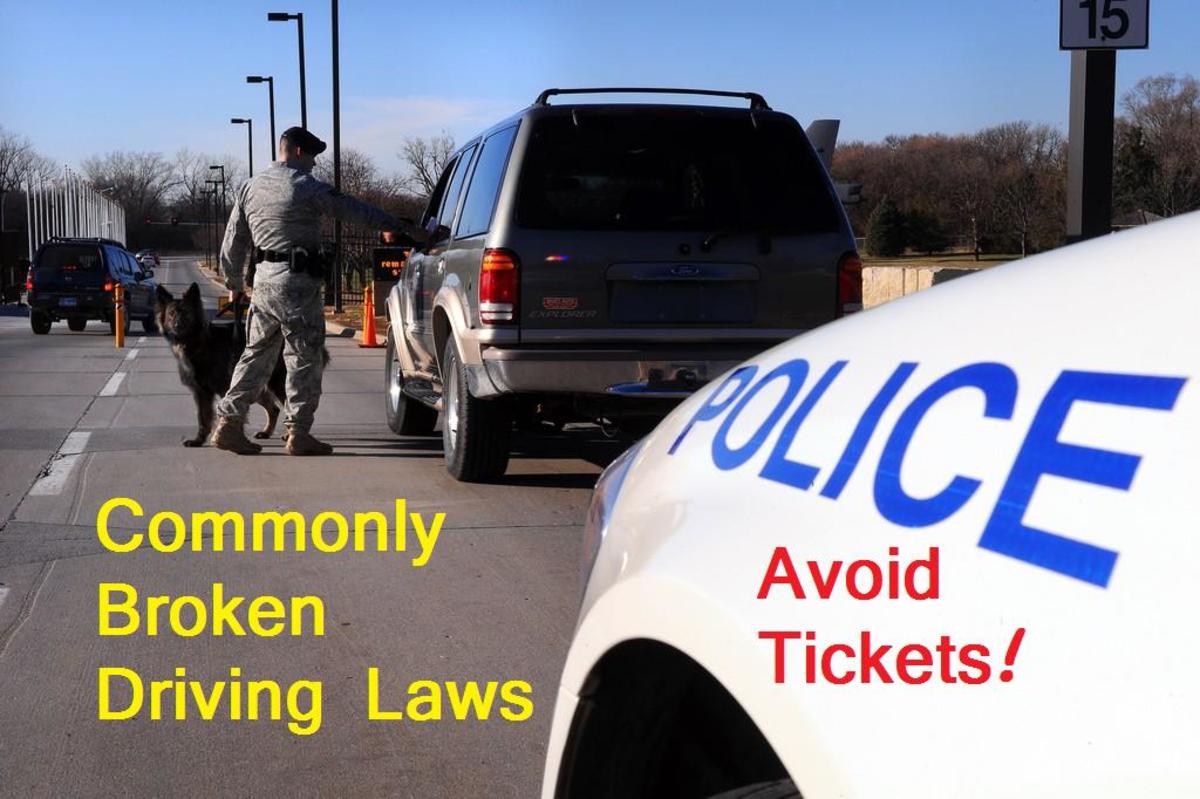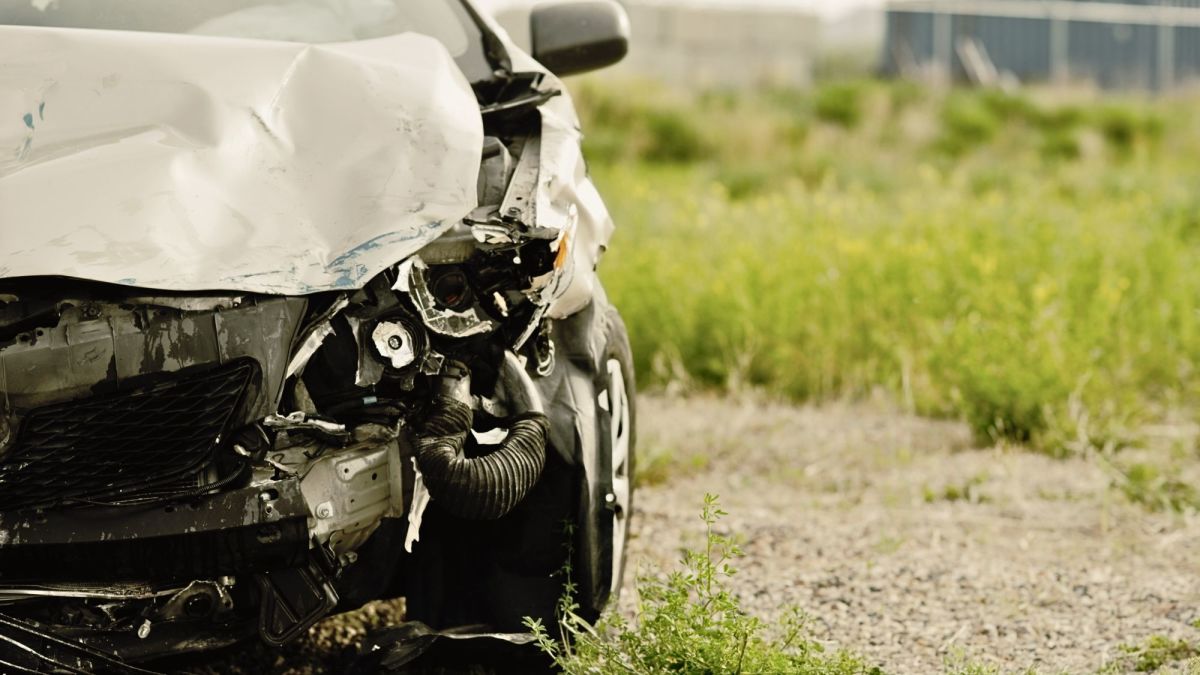Too Old to Drive? Aging, Illness, and Elderly Drivers
Are Aging Drivers Putting Others at Risk?
My 88-year old grandfather sadly gave up the keys to his car this fall, after his health began to decline following my grandmother's death in May. It was not an easy decision for him to make, and the family had to assist him in determining whether his age and health could put others at risk if he continued to drive.
Giving up driving meant my grandfather was losing one of the last significant signs of independence. He now must rely on public transportation, a shuttle from his assisted living facility, or relatives to take him where he needs to go. Grandpa was already depressed as a result of Granny's death, and now, he seems even more sad.
Was it worth it? Generally, the family generally agrees that it was.
Answers to the following questions vary depending on individual circumstances:
- Are aging drivers putting others at risk?
- At what point are you too old to drive?
- Do your medical conditions, prescription medications, or other health risks cause you to be an unsafe driver?
One person may be able to continue driving safely into their 90s, while someone else will show signs of early Alzheimer's Disease in their 50s or 60s. Factors to consider in determining whether aging drivers are putting others at risk are detailed in the next section below. Ultimately, encouraging an aging driver to give up their car keys may be easier if that person is surrounded by a loving, supportive network that can help them maintain dignity and purpose.

Warning Signs You May Be Too Old to Drive
There is no specific age at which the government requires you to give up your car keys, or refuses to renew your driver's license. According to the AARP, the National Highway Traffic Safety Administration and the United States Automobile Association, the driver and/or their family, friends or medical providers should consider the following:
- Hearing or vision problems (e.g., depth of perception issues, trouble reading signs or seeing lane lines or other markers, or declining night vision)
- Delayed reaction times (e.g., feeling overwhelmed by signs, signals and pedestrians, feelings of being lost or confused, difficulty or fear in keeping up with traffic speeds, difficulty in judging gaps in traffic)
- Declining physical fitness or flexibility (e.g. stiffness from arthritis that makes turning the head difficult or slow, trouble moving the foot from the gas to brake pedal, difficulty moving the steering wheel, inability to raise arms above shoulders)
- Memory problems
- Advancing chronic medical conditions
- Conflicting medications
When Should the Elderly Stop Driving?
Statistics on Elderly Drivers: Snapshot of Oregon
Of drivers reported to have "severe and uncontrollable cognitive or functional impairments," in 2010 in Oregon, 60% were 70 or older, and 41% were over 80.
The Oregon Department of Motor Vehicles suspended licenses of 73% of at-risk drivers, reported through its mandatory reporting program in 2010. Less than 13% were able to pass driving tests to regain driving privileges.
Yet, of more than 2,800 drivers reported through the voluntary at-risk program in 2010, 82% were able to retain their driver's license by passing tests or getting a doctor's clearance to continue driving.
The Oregon DMV offers a Quit Driving Identification Card for aging drivers who are giving up the privilege, but wish to retain a photo ID card to use in place of a driver's license. The agency estimates that it issues about 1,500 of these cards annually, 20% of which are to people with medical-based suspensions, and the remaining 80% who elect to give up driving due to aging issues.
How Can Elderly People Retain Driving Privileges?
The presence of some of aging driver warning signs may not necessarily require surrendering the keys to the car, if certain additional safety measures are employed, such as improving positioning of mirrors or ensuring that the driver does not follow other vehicles too closely. There are also programs such as the AARP Driver Safety Program that may be offered in your community - or you can attend online - that help seniors brush up on their driving skills. Enrollment may even result in reduced insurance rates.
Some people voluntarily restrict the times and/or conditions in which they drive (daylight hours, no inclement weather) to feel more safe behind the wheel. Adequate, restful sleep will help, as will regular eye and hearing examinations. Avoiding the use of cell phones - even with hands-free devices - or any consumption of alcohol are advisable practices, as well. Generally speaking, defensive driving practices may help extend the years an aging driver may retain his or her privileges.
If you or a loved one shows any warning signs of being too old to drive, or generally is anxious/uncomfortable about driving, you should consult a medical professional. A doctor can evaluate your physical condition, take into account any medications you may be taking, and advise whether they believe it is safe to continue getting behind the wheel. If the Department of Motor Vehicles has received a report concerning the safety of your driving and suspended or revoked your license, a medical examination may clear you for renewed driving privileges.
Elderly Driver Going the Wrong Way
Medical Conditions Can Pose Risks for Drivers and the Public
While I am only in my 40s, writing this hub and considering the sacrifice my grandfather made to give up his independence along with his car keys was very eye-opening. I am a Type 1, insulin-dependent diabetic. There are times when I have been driving and have gotten confused as to where I was, or where I was going, due to low blood sugar. I have also drifted within my driving lane, bumped up on a curb, and pulled over to call for help (I carry a card in my wallet that states, "I am not intoxicated: I am a diabetic". My condition is chronic and there is no cure, however, it is on very rare occasions that my sugar/insulin levels are not stable. Yet, for this reason, commercial airline pilots are not allowed to fly if they become insulin dependent diabetics.
It goes without saying that motor vehicles are heavy, powerful and potentially lethal. Regardless of age, anyone that experiences any of the warning signs set forth above should seriously consider whether it is safe to get behind the wheel. You may be putting other drivers, pedestrians, yourself and anyone else in your vehicle at risk of serious harm if age or medical conditions or prescriptions impair your mental or physical abilities.
As for my grandfather, we know that he would feel terrible if he got into a car accident simply because he preferred to deny his declining physical abilities than to ask for a bit more help from relatives and friends to drive him around. But, as it is with any loss, it is natural for him and others to grieve the loss of independence associated with giving up driving privileges.
Again, if you have questions regarding your ability to continue safely driving due to age or medical conditions, please see your doctor or medical professional. They may also be able to refer you to a counselor or support group to help with feelings of loss and grief.
Should the Abilities of Elderly Drivers be Tested?
© 2012 Stephanie Marshall








